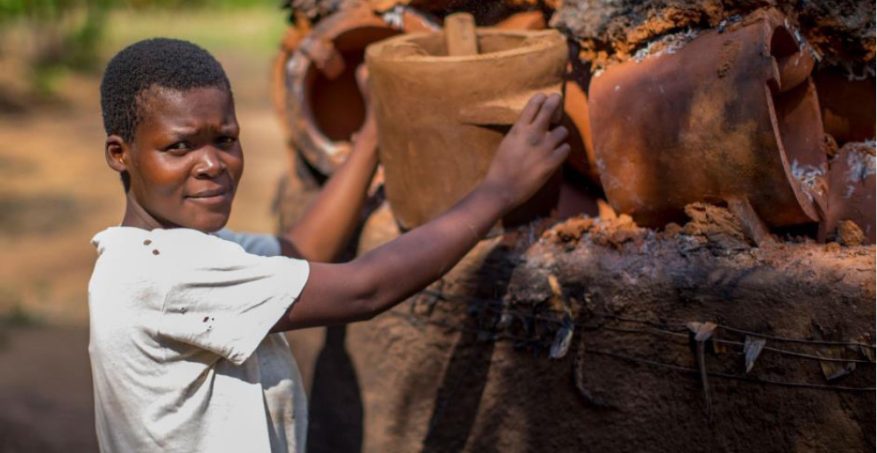More than three quarters of a million energy-saving fuel stoves have been distributed by Self Help Africa in Malawi in the past decade.
The ‘Chitetezo Mbaula’ stoves (meaning ‘protecting stove’ in local dialect) project has generated approximately €400,000 in additional income for the (mainly) women’s groups who manufacture the clay devices, while generating more than €150,000 more in income for traders and agents who sell them.
In a country where just 14 per cent of households have access to electricity and where most rely on open fires and charcoal to meet their home cooking needs, the initiative has halved fuelwood consumption, reduced pollution and saved time and money for local households using the stoves.
Not only do the stoves require less fuel for cooking, they also burn on alternate energy sources, including maize cobs, pigeon pea stalks and other crop residues. This means fewer trips to collect firewood, which expose women and girls to greater risk of sexual assault and violence.
The name “Chitetezo Mbaula” refers to both the safety of the device and its ability to protect forestry in a country that has lost more than 30 per cent of its tree cover in the past 40 years. The stoves have an average lifespan of three to four years.
In an associated initiative, Self Help Africa has also begun promoting the use of a complimentary alternative ‘Zipolopolo’ (meaning ‘bullet’ in the local language) stove , which burns pellets made from agricultural waste – specifically compressed groundnut shells – as an alternative to illegal, unsustainably produced charcoal; the dominant cooking fuel for urban households and one of the leading causes of Malawi’s deforestation.

